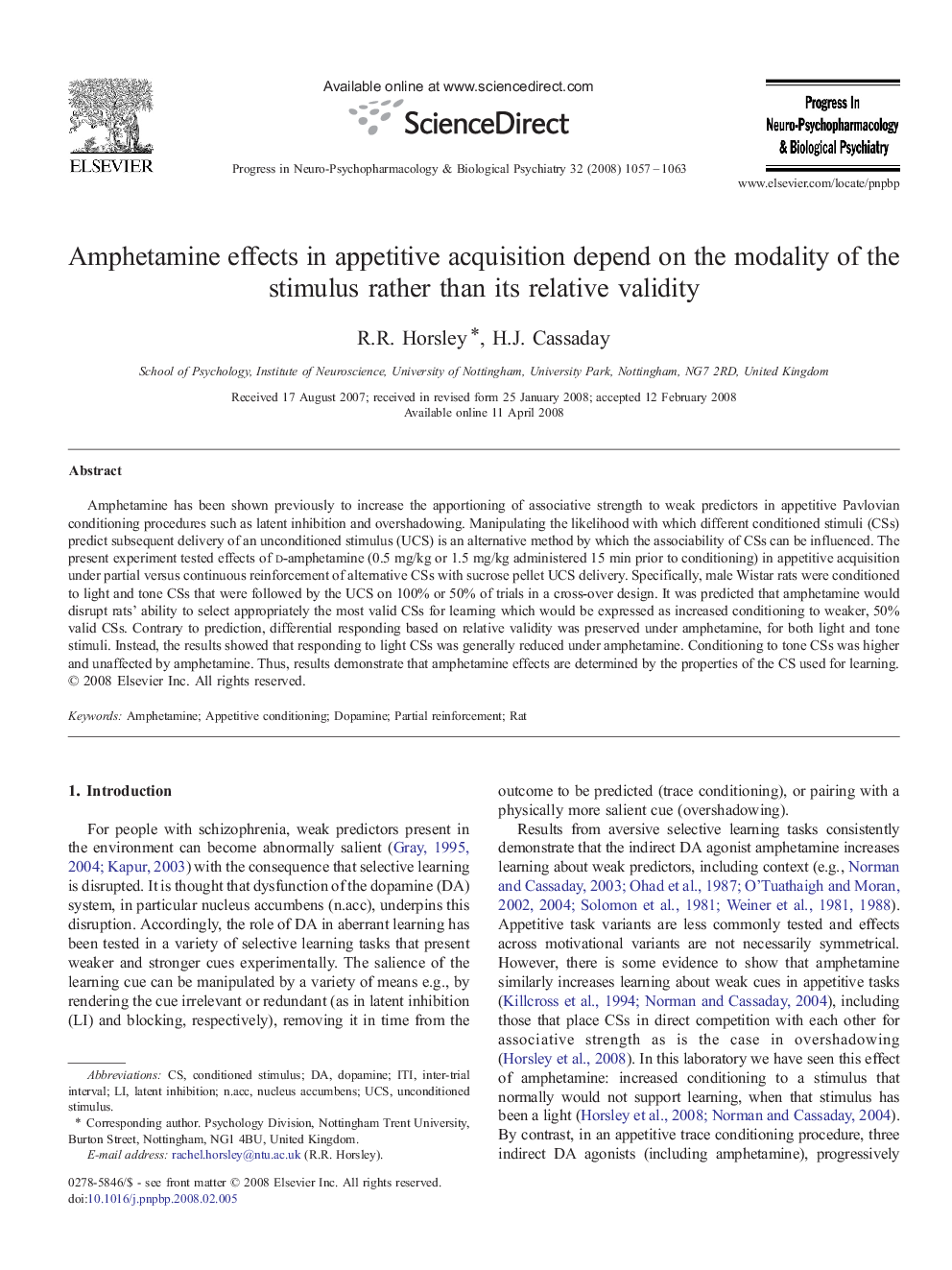| Article ID | Journal | Published Year | Pages | File Type |
|---|---|---|---|---|
| 2565915 | Progress in Neuro-Psychopharmacology and Biological Psychiatry | 2008 | 7 Pages |
Amphetamine has been shown previously to increase the apportioning of associative strength to weak predictors in appetitive Pavlovian conditioning procedures such as latent inhibition and overshadowing. Manipulating the likelihood with which different conditioned stimuli (CSs) predict subsequent delivery of an unconditioned stimulus (UCS) is an alternative method by which the associability of CSs can be influenced. The present experiment tested effects of d-amphetamine (0.5 mg/kg or 1.5 mg/kg administered 15 min prior to conditioning) in appetitive acquisition under partial versus continuous reinforcement of alternative CSs with sucrose pellet UCS delivery. Specifically, male Wistar rats were conditioned to light and tone CSs that were followed by the UCS on 100% or 50% of trials in a cross-over design. It was predicted that amphetamine would disrupt rats' ability to select appropriately the most valid CSs for learning which would be expressed as increased conditioning to weaker, 50% valid CSs. Contrary to prediction, differential responding based on relative validity was preserved under amphetamine, for both light and tone stimuli. Instead, the results showed that responding to light CSs was generally reduced under amphetamine. Conditioning to tone CSs was higher and unaffected by amphetamine. Thus, results demonstrate that amphetamine effects are determined by the properties of the CS used for learning.
